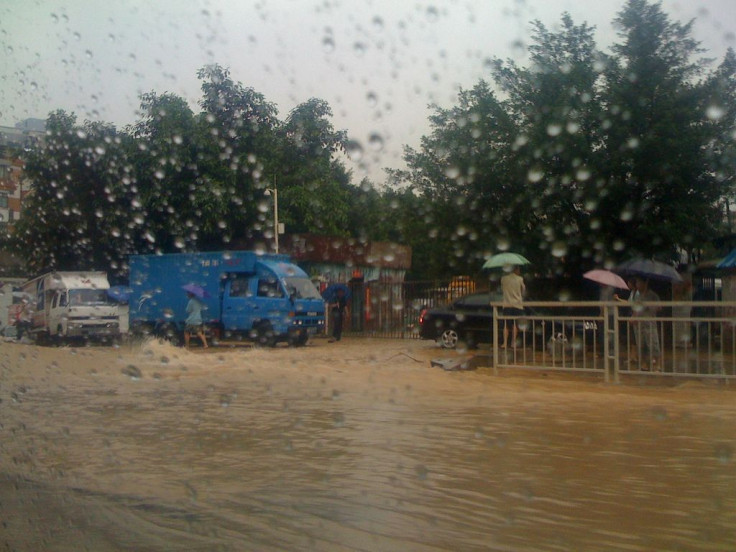China Flooding: Heaviest Rain In 1000 Years; Foxconn Says Its Zhengzhou Factory Not Impacted

KEY POINTS
- Zhengzhou experienced 24 inches of rain in four days
- Scientists have linked the heavy rainfall in the region to global warming
- A dam had to be blasted in Luoyang city to prevent further flooding
- Foxconn said its Zhengzhou factory has so far not been affected by the floods
More than a million people have been affected and at least 25 have died in what could be what some experts call Henan province’s heaviest rainfall in 1,000 years.
In a media briefing, deputy director in the Chinese province’s local government unit, Xu Zhong, said seven people are missing, NBC reported. Henan capital Zhengzhou saw 24 inches of rain between Saturday and Tuesday, and the latest forecasts indicate more rain for the next three days. Scientists told Reuters that heavy rainfall in China was linked to global warming.
Zhengzhou is a crucial industrial hub not just in Henan but in China as a whole. More than 10 million residents have been affected by flooding in the region.
IPhone manufacturer Foxconn said its Zhengzhou factory has not been affected by the floods. Foxconn’s Zhengzhou plant is the world’s biggest iPhone factory and the company told CNBC that it had “activated an emergency response plan for flood control measures” at the factory site.
Chinese tech companies have pledged donations to those affected by the flood.
Bus services, powered by electricity, were halted due to the rain, forcing some people to take the subway. Earlier this week, 12 people died after getting trapped in a subway train in Zhengzhou. At the First Affiliated Hospital of Zhengzhou University, staff had to hand-pump airbags for patients under ventilation when floods knocked out power.
At least 25 people have died in China's flood-stricken central province of Henan, 12 of them in a subway line in its capital that was drenched by what weather officials called the heaviest rains in a thousand years https://t.co/24tbuCN9Fu 1/5 pic.twitter.com/CcqZAaCgoo
— Reuters (@Reuters) July 21, 2021
Four people were also killed in Gongyi, which is located by the banks of the Yellow River.
On Tuesday evening, Chinese military blasted a dam in Luoyang city in efforts to release floodwaters that could affect some of the country’s most heavily populated regions. The Associated Press reported that the blasting was carried out around the same time severe flooding stranded people in offices, apartment complexes and subways.
Authorities in Guojiazui said the reservoir in the area was breached. About 100,000 people were evacuated earlier this week.
Professor of atmospheric science at City University of Hong Kong, Johnny Chan, said the country should expect “such extreme weather events” to recur in the future. Chan added that governments, both Beijing and local units, should “develop strategies” to counter further weather changes.
Chinese President Xi Jinping has admitted that work on preventing floods has “become very difficult.”

© Copyright IBTimes 2025. All rights reserved.






















